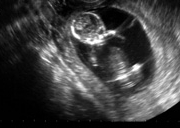Major Danish study – significantly higher maternal death rates following abortion
 Hot on the heels of two major reports in the last week from Finland and Scotland confirming the link between abortion and preterm delivery, a major new Danish study this week has raised concerns about death following abortion.
Hot on the heels of two major reports in the last week from Finland and Scotland confirming the link between abortion and preterm delivery, a major new Danish study this week has raised concerns about death following abortion.
It is commonly believed that abortion is safer for women than a normal delivery but this new study of the medical records for nearly half a million women in Denmark reveals significantly higher maternal death rates following abortion compared to delivery.
Women having abortions in the first 12 weeks of pregnancy were almost twice as likely to die in the first 180 days than those who carried their pregnancies to term but the risk of death for those having late abortions was even higher.
Women having abortions after twelve weeks were more than four times likely to die in the first year than those having normal deliveries.
The finding confirms similar large-scale population studies conducted in Finland and the United States, but contradicts the widely held belief that abortion is safer than childbirth.
The new study, which related reproductive history and mortality rates using national data from Denmark, has just been published in the Medical Science Monitor (impact factor 1.7) and is available for free download (£).
The title of the paper is ‘Short and Long Term Mortality Rates Associated with First Pregnancy Outcome: Population Register Based Study for Denmark 1980-2004’
The objectives of the study were to examine mortality rates associated with first pregnancy outcome and to explore differences in mortality rates associated with early abortion and late abortions (after 12 weeks). The population was comprised of a total of 463,473 Danish women who had their first pregnancy between 1980 and 2004 (2,238 died across the full study period).
Compared to women who carried their first pregnancy to term, after adjusting for age and birth year, the cumulative risk of death for women who had a 1st trimester abortion was significantly higher in all periods examined from 180 days (84%) through 10 years (39%). The risk of death was likewise significantly higher for women who had abortions after 12 weeks from one year (331%) through 10 years (141%) when compared to women who delivered a first pregnancy. Finally, for women who miscarried, the risk was significantly higher for cumulative deaths through 4 years (75%) and at 10 years (48%).
Why is this study important?
1) Record-based studies provide complete reproductive history data for all residents. There are very few record-based studies of mortality risks associated with reproductive loss available in the published literature. Without data-linkage to complete reproductive histories (as in this study), results are highly unreliable as prior research suggests as many as 73% of all pregnancy associated deaths are not apparent from death certificates.
2) This study eliminates the potential confounding effect of unknown prior pregnancy history by examining mortality rates associated with first pregnancy outcome alone.
3) No previous record-based studies have compared early induced abortions to later abortions. There is consensus that late-term abortions are associated with more physiological risks and higher rates of maternal mortality in the short term compared to early abortions. However, longer term mortality risks have not been previously examined with record-based data.
I am grateful to AAPLOG for drawing this report to my attention.












Leave a Reply
Want to join the discussion?Feel free to contribute!